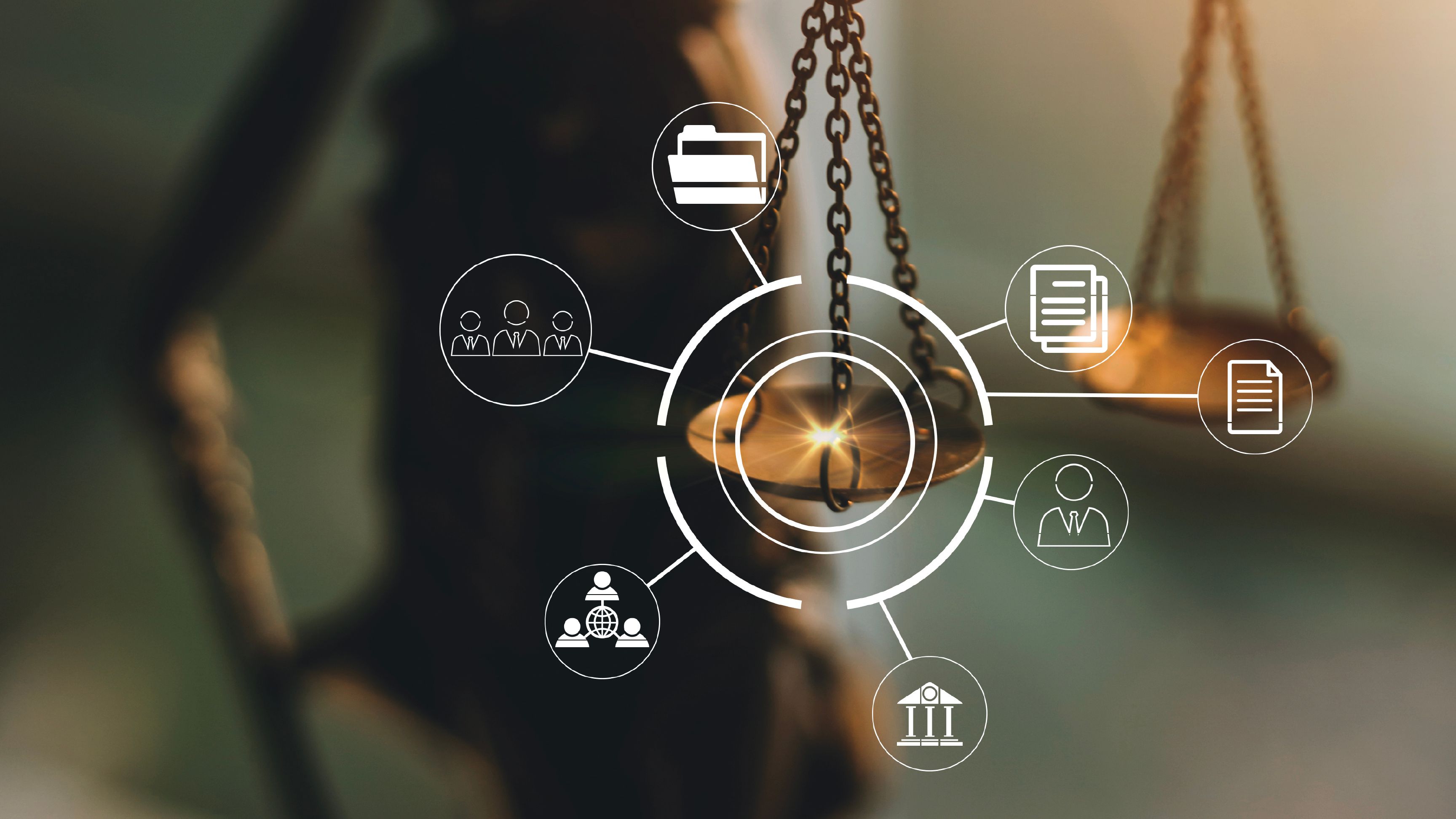
Blog
The need for Digital Justice & Courtroom Modernization

Justice systems worldwide are under increasing pressure as legal complexity rises and more people rightfully demand access to justice. Digital transformation is the key for courts to keep pace. Digital justice is an immense chance to improve the lives of millions of people, but only if the technology is understood and implemented fast.
The administration of justice is a core function of modern societies. Yet it is also an enormous, resource-intensive task operating in a complex, multilayered system shaped by societal conflicts, fundamental rights, and organizational challenges. Globally, justice systems exist at very different levels of maturity: According to the World Justice Project, nearly a quarter of a billion people live in conditions of extreme injustice such as slavery, lacking all fundamental rights. Another 1.5 billion people cannot obtain justice to resolve everyday legal issues, and an astonishing 4.5 billion people lack the legal tools to protect their assets or are incapable of accessing the public services to which they have a right. While some of these challenges are linked to poverty and lack of institutions, insufficient access to justice persists in some of the richest, most developed countries. Remedies are often available in theory, but the complexity, costs, and duration of legal proceedings discourage their pursuit in practice.
Many factors often simultaneously influence the availability and administration of justice, but one is at the center: legal complexity. It results from an increasingly globalized economy in which products and services blend physical, augmented, and virtual realities. The rules required to organize this multidimensional global marketplace form a constantly growing, ever more complex, and interlinked regulatory ecosystem. Courts—as the primary institutions to interpret these rules and resolve resulting conflicts—not only have to navigate increasingly complicated laws but also deal with an explosion of case numbers in certain areas. Often understaffed and ill-equipped with complexity management tools from the past (e.g., paper records or fax machines), they take longer to decide cases, require costly outside expertise, or reach results that are unexpected by the parties involved.
High costs, the lengthy time required to resolve cases, and uncertainty regarding outcomes, affect individuals and companies alike. As a result, individuals often display rational ignorance—failing to understand that a particular problem has a legal solution—or rational indifference—not pursuing valid legal claims because it seems like too much hassle. Consumer-facing legal technology companies have helped millions of people worldwide overcome these hurdles, understand their rights, and pursue their claims in courts.
Yet when legal proceedings leave the sphere of the consumer or the company and enter the courts, they are often thrown back in time: While collaboration software and chatbots enable near real-time communication and decisions, inquiries from judges and minor procedural orders can take months to resolve.
Processes that could be instantly tracked on department-wide dashboards turn into opaque proceedings with irregular updates provided only upon request. Documents that could take minutes to create at negligible cost led to perennial lawsuits that cost tens and hundreds of thousands to decide. Why is the experience so different between legal services in the private sector and public dispute resolution in courts?
Insufficient digitalization leads to a bad user experience and eroding trust in our legal institutions. It drives parties into private dispute resolution and is increasingly seen as a negative location factor, inhibiting business activity and economic growth. It risks overwhelming judges and clerks. Justice systems, intended to satisfy both those seeking and administering justice, instead leaving each group dissatisfied.

